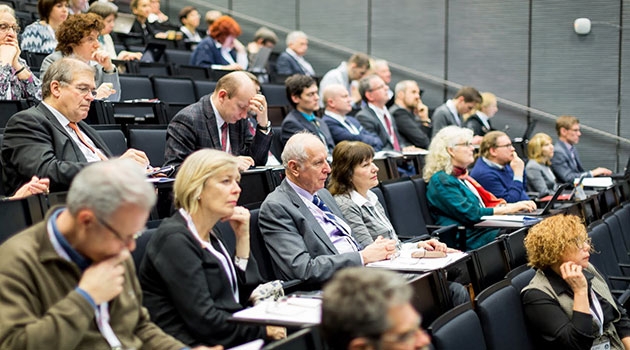Gathering for universities in Baltic Sea region
Around 80 senior university officers from 10 different countries in the Baltic Sea region are gathering in Uppsala this week for the Baltic University Programme Rectors’ Conference. With 87 member institutions, this is one of the largest university networks in the world, which last year celebrated its 30th anniversary.
The director of the programme, Madeleine Granvik, is looking forward to showing how the programme has developed since the last rectors’ conference in 2018, when several possible ways forward were discussed.
Programme and researcher at Uppsala University.
“It will be enjoyable and exciting to present everything we have followed up since then and receive some feedback. It’s also important to remind ourselves that the Baltic University Programme is something that we, colleagues and students from all the participating universities, develop together,” she says.
“In my role as director, I will stress that our collaboration in BUP is more vital than ever, bearing in mind the current challenges, such as war in our region, climate change, pandemics and increased polarisation in society. These difficult circumstances demand – more than ever – that we continue to communicate, cooperate and contribute to a more sustainable development of our shared region.”
Focus on sustainability
The conference focuses on internationalisation, sustainability and quality assurance issues and will also take up the role of the university in defending democracy and the independence of higher education.
“Having carried out studies addressed to the 87 universities participating in the programme, we see from the results that they experience challenges in both their sustainability efforts and their work on quality assurance in education, for example. During the conference a total of 22 participants will talk about their experiences at their universities in presentations and panels.”
Course on climate change
The Baltic University Programme promotes and encourages interdisciplinary and intercultural cooperation on sustainability in the Baltic Sea region. It uses the BUP working model, which is based on collaborations between colleagues in interdisciplinary and intercultural teams. One example of this is the recently concluded project Climate Change Curriculum in which more than 30 researchers from 14 universities in nine countries participated to develop a course on climate change in the Baltic Sea region.
“Working together and learning from one another is enormously valuable as sustainability challenges are often extremely complex and are embedded in many different systems on differing scales and in varying contexts. Finding solutions to the challenges facing society requires cooperation across academic and geographical boundaries,” Granvik concludes.
Annica Hulth

